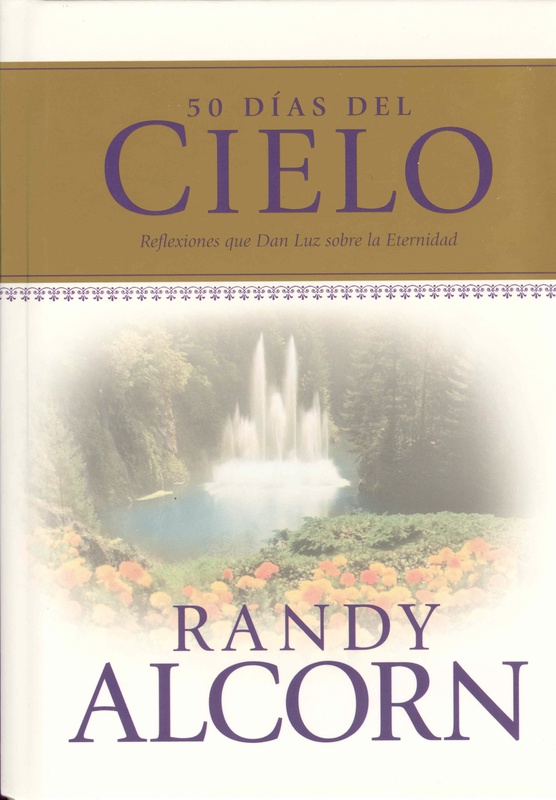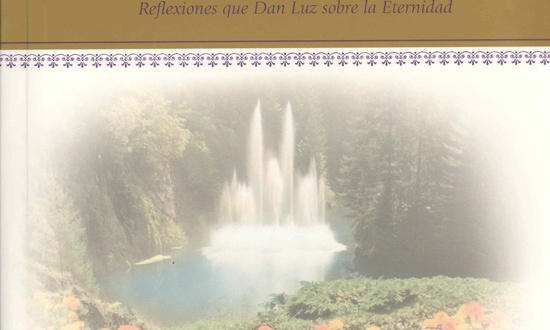Yo sé que mi Redentor vive, y que al final triunfará sobre la muerte. Y cuando mi piel haya sido destruida, todavía veré a Dios con mis propios ojos. — Job 19:25-26
Por cierto que los redimidos disfrutarán otras cosas. . . . Pero lo que disfrutarán en los ángeles, los unos en los otros, o cualquier otra cosa que sea, lo que les dará gozo y felicidad, será lo que se vea de Dios en ellos. — Jonathan Edwards
La anticipación de ver a Dios cara a cara es sincera y antigua. En el libro más antiguo de las Escrituras—probablemente escrito antes que Moisés escribiera el Génesis—Job, en medio de una angustia aplastante, clamó en una visión de sorprendente claridad que su Redentor un día vendría a la Tierra. Y aunque el cuerpo de Job sería destrozado por la muerte física, él sabía que en su propia carne vería a Dios. Es difícil imaginarse una referencia más clara a la resurrección venidera.
¿En qué forma estaremos cuando veamos a Dios? ¿Seremos espíritus fantasmales que flotan por todos lados? No, seremos seres humanos resucitados que nos pondremos de pie y nos arrodillaremos, caminaremos y hablaremos, oraremos y adoraremos, reiremos, comeremos y beberemos en nuestros nuevos cuerpos. Como clamó Job: “Y cuando mi piel haya sido destruida, todavía veré a Dios con mis propios ojos.”
Cuando Job se imaginó ver a su Redentor con sus propios ojos, eso inundó su afligida alma con un sentido trascendente de victoria y consuelo. Cuando usted anticipa ver a Dios cara a cara, ¿qué imágenes le vienen a la mente? ¿Qué efecto tienen esas imágenes en usted?
¿Será también humano el Cristo que adoraremos en el Cielo como Dios? Sí. De acuerdo a Hebreos 13:8, “Jesucristo es el mismo ayer [cuando vivió en la Tierra] y hoy [cuando vive en el Cielo presente] y por los siglos [cuando vivirá en la Nueva Tierra, en el Cielo eterno].”
Jesús no se puso un cuerpo y luego se lo quitó otra vez como si fuera una chaqueta. No consta de dos componentes separables, hombre y Dios, los cuales pueden ser ahora uno y luego el otro. Él fue y es y siempre será Dios y hombre. La encarnación es permanente.
No es preciso que esperemos hasta la Nueva Tierra para captar vistazos de Dios. Se nos dice que sus “cualidades invisibles” se pueden ver “claramente a través de lo que él creó” (Romanos 1:20). Sí, vivimos en medio de la devastación, y sabemos que hay corrupción en nuestro corazón. Sí, nuestra visión está obstaculizada por la maldición que afecta a toda la creación. El Edén ha sido pisoteado, hollado y desacreditado. Pero sin embargo, las estrellas en el firmamento declaran la gloria de Dios (Salmo 19:1); en nuestros propios cuerpos podemos ver la complejidad de la obra de Dios; y en las flores, la lluvia, y en el arte y en la música podemos ver vestigios de la belleza y la creatividad de Dios. Y un día la maldición será revocada. Un día, tanto el universo como nosotros seremos libres para siempre. En aquel día, veremos a Dios.
En el Cielo, las barreras entre los seres humanos redimidos y Dios serán quitadas para siempre. Miraremos a Dios a los ojos y veremos lo que siempre hemos anhelado ver: a la persona que nos hizo para su propio placer. Ver a Dios será como ver todo lo demás por primera vez. ¿Por qué? Porque no sólo veremos a Dios, sino que él será la lente a través de la cual veremos todo lo demás—a otras personas, a nosotros mismos y los acontecimientos de nuestra vida terrenal.
Jonathan Edwards dijo: “Por cierto que los redimidos disfrutarán otras cosas. . . . Pero lo que disfrutarán en los ángeles, los unos en los otros, o cualquier otra cosa que sea, lo que les dará gozo y felicidad, será lo que se vea de Dios en ellos.”
En el Salmo 73:25, Asaf dice: “¿A quién tengo en el cielo sino a ti? Si estoy contigo, ya nada quiero en la tierra.” Esto puede parecer una exageración —¿no hay nada en la Tierra que quiera este hombre sino a Dios? Pero lo que afirma Asaf es que el deseo central de nuestro corazón es por Dios. Sí, deseamos muchas otras cosas, pero al desearlas, lo que en realidad deseamos es a Dios.
Agustín llamó a Dios “el fin de nuestros deseos.” Él oró: “Nos has hecho para ti mismo, oh Señor, y nuestros corazones no hallan descanso hasta que descansan en ti.”
Dios es el Manantial, la Fuente de todas las corrientes más pequeñas de nuestro deseo. Cuando deseamos comida, amistades, trabajo, distracciones, música, drama o arte, en esencia estamos deseando a Dios.
Considere esta analogía: Cuando usted está enfermo y su amigo le trae una comida, ¿qué es lo que suple su necesidad —la comida o el amigo? Ambos. Sin su amigo, no habría comida, pero aun con la comida, usted todavía apreciaría la amistad que los une. Así que su amigo es ambos, su mayor placer y la fuente de su placer secundario (la comida). De igual manera, Dios es la fuente de todos los bienes menos importantes, así que cuando nos satisfacen, es Dios mismo quien nos está satisfaciendo.
Tal vez usted esté pensando: Pero nuestros ojos deben estar en el dador, no en el don, y por lo tanto, Deberíamos enfocarnos en Dios, y no en el Cielo. Pero esta perspectiva separa en forma errónea nuestra experiencia de Dios de la vida, relaciones, y el mundo—los cuales nos da Dios por su gracia para que nos acerquemos más a él. También ve el reino material y a otra gente como competidores de Dios más que como instrumentos que comunican su amor y carácter. Falla en reconocer que debido a que Dios es la fuente suprema de gozo, y todos los gozos secundarios derivan de él, amar los gozos secundarios en esta Tierra puede ser—y en el Cielo siempre será—amar a Dios, su fuente.
¿Quiere usted pedirle a Dios que lo ayude a aprender a verlo como la fuente de toda cosa buena, y por lo tanto, a quien usted desea más?
Padre, debido a la actual oscuridad que nos rodea, y a las batallas espirituales dentro de nosotros, necesitamos tu ayuda para evitar hacer ídolos de lo que tú nos provees. Ayúdanos a darnos cuenta de que una vez que nos hayas librado para siempre del pecado, una vez que vivamos en tu presencia y veamos tu rostro, nunca más nos tendremos que preocupar acerca de poner a la gente o a otras cosas antes de ti. Eso sería inconcebible. Y si estamos pensando con claridad ahora, ya nos debería ser inconcebible. Así que, Señor, capacítanos para pensar con claridad. Que te podamos ver como eres, para que siempre podamos disfrutar y nunca hacer ídolos de los magníficos deseos y gozos menos importantes que por tu gracia nos has concedido. Usa las cosas que nos deleitan para acercarnos más a ti.
Extracto de 50 Días del Cielo by Randy Alcorn, Día 4.
God: Our Primary Pleasure (Excerpt from 50 Days of Heaven)
I know that my Redeemer lives, and that in the end he will stand upon the earth. And after my skin has been destroyed, yet in my flesh I will see God; I myself will see him with my own eyes. — Job 19:25-27
The redeemed will indeed enjoy other things. . . . But that which they shall enjoy in the angels, or each other, or in anything else whatsoever, that will yield them delight and happiness, will be what will be seen of God in them. — Jonathan Edwards [1]
The anticipation of seeing God face-to-face is heartfelt and ancient. In the oldest recorded book of Scripture—most likely written before Moses wrote Genesis—Job, in the midst of bone-crushing anguish, cried out in a vision of striking clarity that his Redeemer would one day come to Earth. And even though Job’s body would be destroyed through physical death, he knew that he would in his own flesh see God. It’s hard to imagine a clearer reference to the coming resurrection.
In what form will we be when we see God? Will we be ghostly spirits, floating about? No, we will be resurrected human beings, standing and kneeling, walking and talking, praying and worshiping and laughing, eating and drinking in our new bodies. As Job cried out, “After my skin has been destroyed, yet in my flesh I will see God.”
When Job imagined seeing his Redeemer with his own eyes, it flooded his troubled soul with a transcendent sense of victory and comfort. As you anticipate seeing God face-to-face, what images come to mind? What effect do those images have on you?
Will the Christ we worship in Heaven as God also be human? Yes. According to Hebrews 13:8, “Jesus Christ is the same yesterday [when he lived on Earth] and today [when he lives in the intermediate Heaven] and forever [when he will live on the New Earth, in the eternal Heaven].”
Jesus didn’t put on a body and then shed it again as if it were a coat. He doesn’t comprise two separable components, man and God, to be switched on and off. He was and is and always will be God and a man. The Incarnation is permanent.
We need not wait until the New Earth to catch glimpses of God. We’re told his “invisible qualities” can be “clearly seen” in “what has been made” (Romans 1:20). Yes, we live amid devastation, and we know the corruption of our own hearts. Yes, our vision is hampered by the curse that affects all of creation. Eden has been trampled, torched, and savaged. Nevertheless, the stars in the sky declare God’s glory (Psalm 19:1); in our own bodies we can see the intricacy of God’s craftsmanship; and in flowers and rain and art and music we see vestiges of God’s beauty and creativity. And one day the Curse will be reversed. One day, both we and the universe will be forever set free. In that day, we will see God.
In Heaven, the barriers between redeemed human beings and God will be removed forever. We will look into God’s eyes and see what we’ve always longed to see: the person who made us for his own good pleasure. Seeing God will be like seeing everything else for the first time. Why? Because not only will we see God, he will be the lens through which we see everything else—other people, ourselves, and the events of our earthly lives.
Jonathan Edwards said, “The redeemed will indeed enjoy other things. . . . But that which they shall enjoy in the angels, or each other, or in anything else whatsoever, that will yield them delight and happiness, will be what will be seen of God in them." [2]
In Psalm 73:25, Asaph says, “Whom have I in heaven but you? And earth has nothing I desire besides you.” This may seem an overstatement—there’s nothing on Earth this man desires but God? But Asaph is affirming that the central desire of our hearts is for God. Yes, we desire many other things—but in desiring them, it is really God we desire.
Augustine called God “the end of our desires.” He prayed, “You have made us for yourself, O Lord, and our hearts are restless until they rest in you." [3]
God is the Fountainhead, the Source of all lesser streams of our desire. When we desire food, friendship, work, play, music, drama, or art, we are ultimately desiring God.
Consider this analogy: When you’re sick and your friend brings you a meal, what meets your needs—the meal or the friend? Both. Without your friend, there would be no meal; but even without the meal, you would still treasure your friendship. Thus, your friend is both your higher pleasure and the source of your secondary pleasure (the meal). Likewise, God is the source of all lesser goods, so that when they satisfy us, it is God himself who is satisfying us.
Perhaps you’re thinking, But our eyes should be on the giver, not the gift and, thus, We ought to focus on God, not on Heaven. But this perspective erroneously divorces our experience of God from life, relationships, and the world—all of which God graciously gives us to draw us closer to him. It also sees the material realm and other people as God’s competitors rather than as instruments that communicate his love and character. It fails to recognize that because God is the ultimate source of joy, and all secondary joys derive from him, to love secondary joys on this earth can be—and in Heaven always will be—to love God, their source.
Do you want to ask God to help you learn to see him as the source of every good thing and thus as the one you most desire?
Father, given the current darkness around us, and the spiritual battles within us, we need your help to avoid making idols of your provisions. Help us realize that once you have forever freed us from sin, once we live in your presence and see your face, we’ll never have to worry about putting people or things above you. That would be unthinkable. And if we were thinking clearly now, it would be unthinkable to us already. So empower us to think clearly, Lord. May we see you as you are, so we may always enjoy but never idolize the magnificent lesser desires and joys you have graciously granted to us. Use the things that delight us to draw us closer to you.
Excerpt from 50 Days of Heaven by Randy Alcorn, Day 4.
Notes
1 Jonathan Edwards, The Sermons of Jonathan Edwards: A Reader, ed. Wilson H. Kimnach, Kenneth P. Minkema, and Douglas A. Sweeney (New Haven, Conn.: Yale University Press, 1999), 74-75.
2 Ibid.
3 Augustine, The City of God, 22, 30 and Confessions 1, 1, quoted in John E. Rotelle, Augustine Day by Day (New York: Catholic Book Publishing, 1986).



